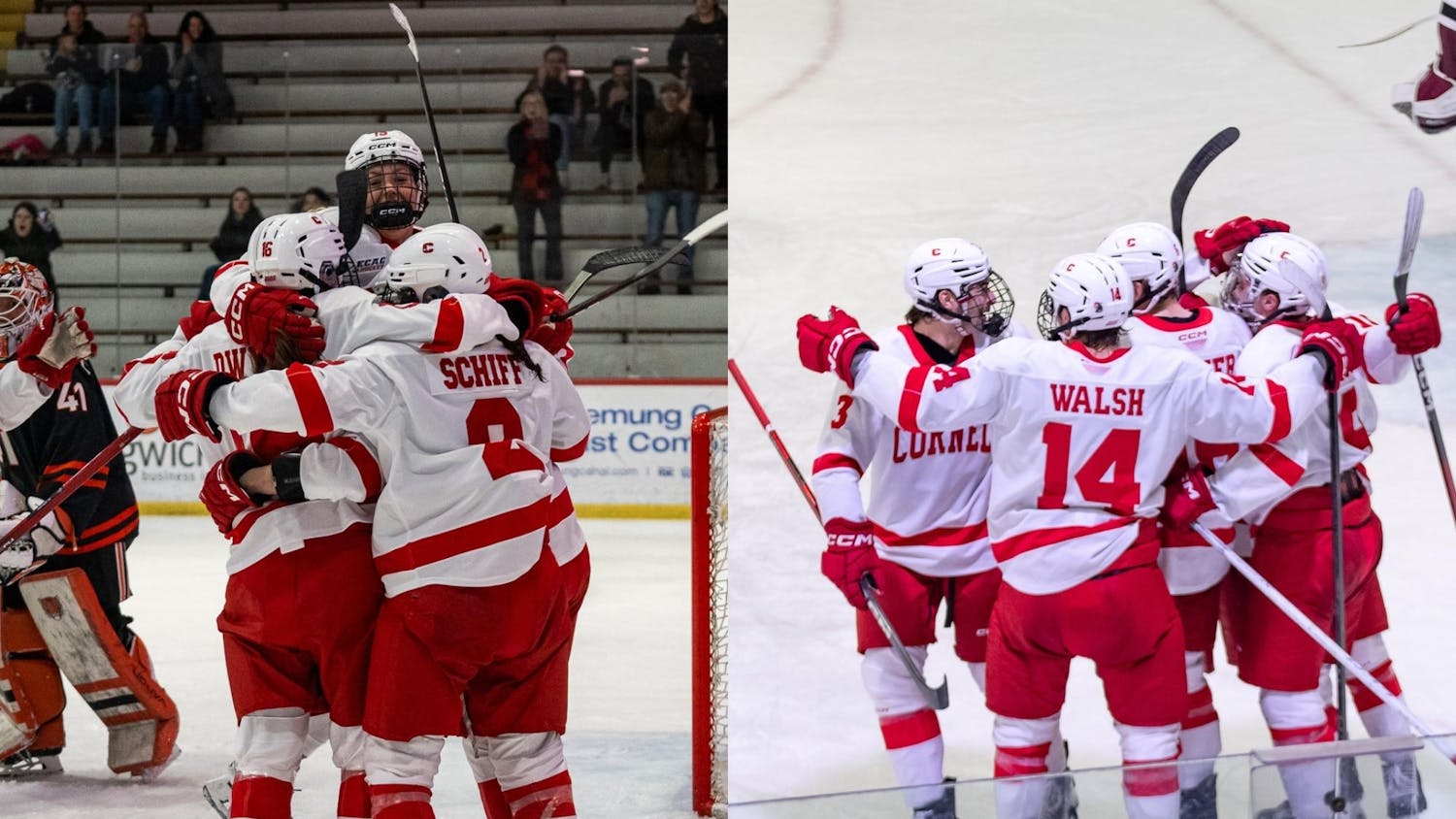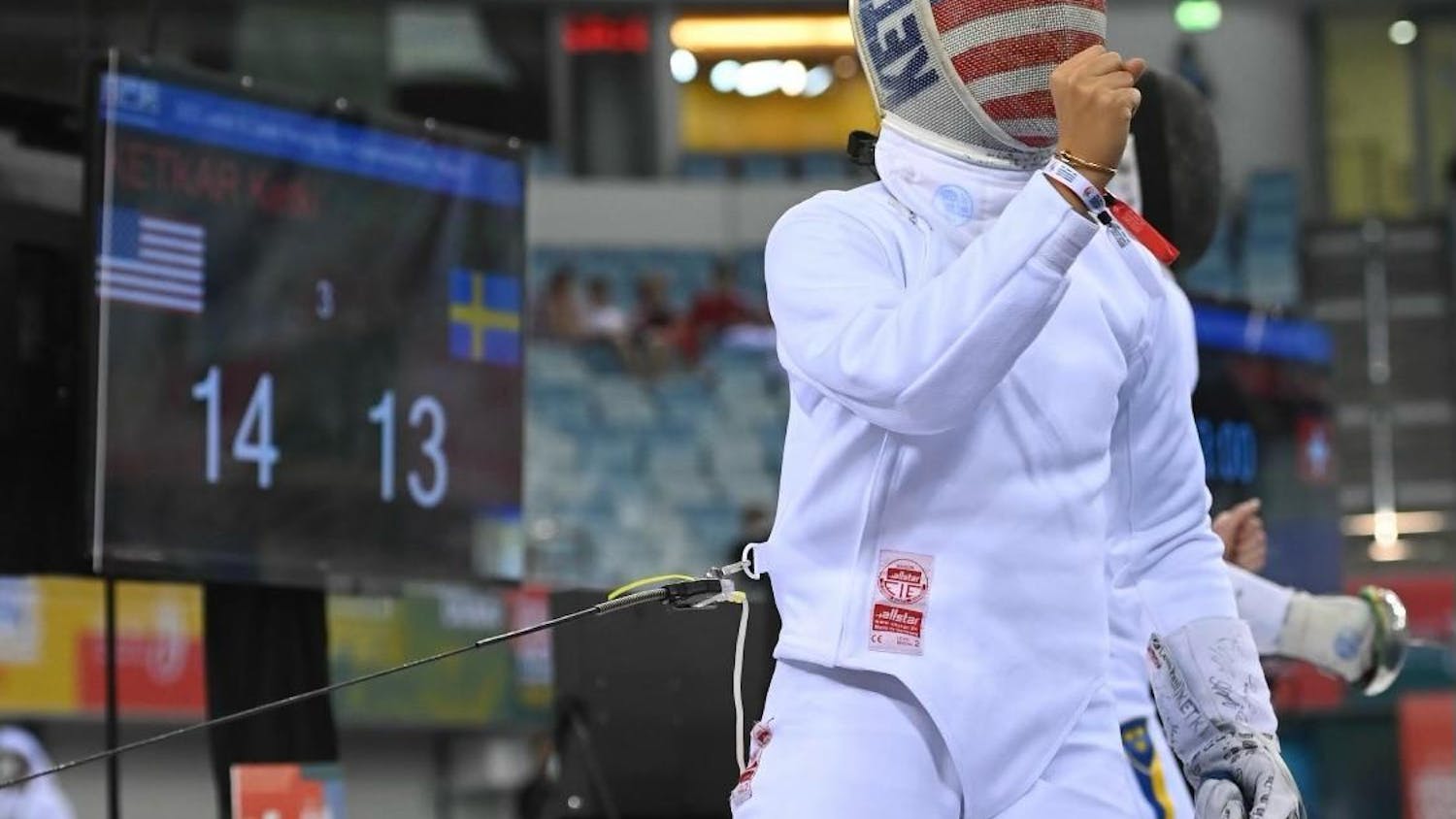After weeks of tweaking the offense early in the schedule, freshman quarterback Jameson Wang has come onto the scene midway through the season, adding a spark to the Cornell football offense.
Following his first week of extended play against Colgate, Wang has managed to become the Red’s leading scorer, rusher and post the highest quarterback rating of any other player on the roster.
But Wang has also had to prove himself to both his coaches and fellow teammates as the lone Asian American on the team, an experience he describes as a challenge he has carried with him throughout his football career.
During the 2019-2020 football season, only about 0.3 percent of all NCAA Division I football players in the country identified as Asian. Being one of the few Asian Americans to play for the Red in recent memory, Wang has been placed center stage while he tackles one of the most integral positions in the game. Even while splitting time between fifth-year quarterback Richie Kenney, senior Ben Mays and sophomore Luke Duby, Wang has faced mounting pressure to solidify his role as a part of Cornell’s future and act as a face for Asian American athletes across the country.
The quarterback’s journey into American football extends beyond his lifetime. Wang’s father immigrated from China to Taiwan and finally to Rochester, New York, first picking up football through his friends at school.
“I remember he would tell me stories about how he would have to find rides to get to practice because his parents were working,” Wang said, remembering his father’s football experiences. “His friends really helped him a lot and embraced him into the culture of getting to play football. His parents had no idea what American football was like in China, so him coming over and breaking that barrier to be part of the American culture was a big accomplishment for him.”
Wang said his father instilled this football culture and the game’s values into him, coaching Wang to play quarterback as soon as he could step onto the field.
“He’s been my coach since I was four and up until eighth grade and entering high school,” Wang said. “He's really pushed me and made me the player I am. If it wasn't for him, I probably wouldn't be playing, to be honest.”
Wang credits his father for instilling the values of leadership, work ethic and passion into his life through football, and these lessons proved crucial when he entered high school at Harvard-Westlake in Los Angeles, California. Wang started off his playing career at the varsity level early on, stepping in as a freshman and quickly learning how to play at the next level.
“I was thrown into the fire as a freshman quarterback. I was 15 years old playing against 18 or 19-year-old men with tattoos along their arms and legs,” Wang explained. “But that experience alone has developed me into a better player. Now when I play, I'm calm. I'm not nervous or sporadic. I understand what's going on … That experience alone really helped me go into sophomore year and have a good breakout season.”
Wang had arguably his best statistical high school season in his sophomore year, throwing for 2,355 yards and 29 touchdowns while rushing for 894 yards and 16 more scores. However, for all that he was proving in the stats sheets, Wang said he still faced adversity and racism being one of the only Asians on the field at any given matchup.
During one game, Wang recalls he was running out of bounds on the opposing team’s sideline when a bystander made a racist comment about Wang’s ability to see on the field.
“As I [was] running back, I just laughed it off and ran back to the huddle,” Wang said.
It was not until high school that Wang said he felt the weight of the challenges of being Asian in American football, when he said his father gave him advice to tune out the negativity.
“[He told me] some people are going to talk to you in a manner that you are not going to want to hear, and you just have to rub it off,” Wang said. “He said it’s always the second person to retaliate that’s going to get blamed.”
“I haven’t worked hard to get offended by a little racial slur,” Wang continued. “I feel like it is part of the game, people are going to try and get under your skin, but when you show that you're not going to react, they're going to stop.”
Rather than worry about his opponents, Wang instead learned to focus his energy on winning over his coaches and teammates.
“My first coach was always good … so I knew from the jump I would get a fair shot,” Wang explained. “I think the biggest part was winning my teammates’ trust, because your teammates are the guys who have never seen an Asian quarterback. Really just winning over the trust from my teammates and showing them that … I could play at this level … was the biggest part of being able to prove myself.”
Senior wide receiver Thomas Glover has had a career year as the Red’s leading receiver and remembers playing with Wang at Harvard-Westlake during that breakout sophomore year. As a result, Glover has shown nothing but praise after being reunited with his former quarterback.
“Me knowing Jameson for so long, I know that he's a playmaker,” Glover said. “I know that when he's on the field, he's gonna do his thing. He's gonna make plays, scramble and throw the ball well … I think it’s good [to have him on the field], and I’m excited.”
As years went by and Wang began getting noticed by various colleges, he quickly took on a new role in the Asian American community as a role model.
“As I got deeper in high school and realized that I was good enough to play at the collegiate level, I was trying to use my platform to promote Asian Americans and American football because there just hasn't been that many people to do it,” Wang said.
Being from Los Angeles, Wang’s play was often noticed and publicized through platforms like Instagram. During his sophomore and junior seasons, Wang received direct messages from other Asian Americans aspiring to play football.
“So that's when I was using my platform to help encourage other Asian Americans that they can do it too,” Wang said. “I'm not the first one, and I'm not going to be the last one to do it.”
After first spending a year at the Air Force Academy, Wang has found himself playing for the Red as a freshman ready to take on the next chapter in his life both athletically and academically. After his first few months in Ithaca, Wang has expressed nothing but gratitude toward the school and his teammates.
“Cornell is very inclusive,” Wang said. “The team so far has had my back. I've had their backs, and I don't have any chemistry issues with any of the guys.”
Still, without many role models to look up to or figures to be compared to, Wang said he and others like him have had to work harder than most to prove their worth on the football field.
“I feel like [being Asian American] gives me a different outlook on how I approach the game because … I have to earn everything,” Wang said. “I have to work the hardest because for Asian Americans, since it's not the stereotype, people turn their back more on you. If you don't show up every day, putting in the work, they’re not going to believe in you.”











